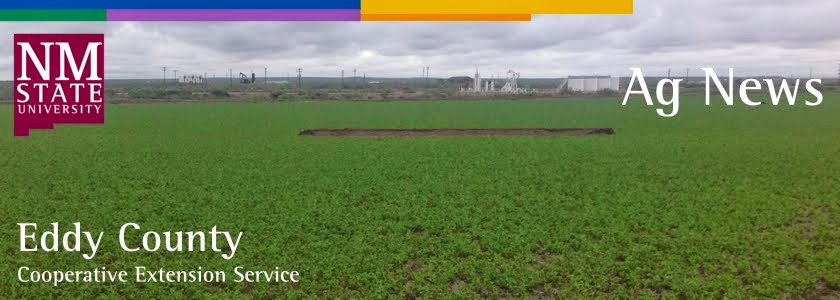“Justice for Migrants” is the theme of the 2019
J. Paul Taylor Social Justice Symposium April 11-12 at New Mexico State
University. The symposium will feature panels of experts tackling the subjects
dominating national news about the treatment of migrants on our southern border.
The event is free and open to the public.
“The goal of this symposium is to reflect on the philosophical values, public
narratives and community organizing that go in to the defense and promotion of
human rights of immigrants, residents of border communities, DREAMers, asylum
seekers and all migrants in Mexico and the US,” said Neil Harvey, NMSU
professor and department head of government. “The symposium brings together
university researchers, community-based advocates, reporters and students to
share their own philosophical perspectives and experiences regarding the
promotion of justice for migrants.”
Named for a respected state representative and educator, the J. Paul Taylor
Symposium started in 2005 when Taylor suggested strategies for bringing
resources of the university to address problems faced by underserved
populations in the southwest.
This year’s symposium will be hosted by NMSU’s College of Arts and Sciences,
the Office of the Vice President for Research, Department of Philosophy and
Department of Government with generous support from the Guadalupe Institute.
The “Justice for Migrants” event begins with a panel discussion from 3:30-5:30
p.m. Thursday, April 11 at Gardiner Hall, Room 230. Panelists include NMSU
professors Harvey and Lori Keleher, philosophy professor as well as David
Holtby from the Guadalupe Institute in Albuquerque, Camilo Perez Bustillo from
the Hope Border Institute in El Paso, Blanca Adriana Ontiveros from the New
Mexico Dream Team and Nancy Oretskin from the Southwest Asylum and Migration
Institute.
The annual Social Justice Awards reception and keynote address will follow from
6-8 p.m. with remarks from NMSU Chancellor Dan Arvizu, College of Arts and
Sciences Dean Enrico Pontelli, Vice President for Research and Dean of the Graduate
School Luis Cifuentes, Honorable J. Paul Taylor and President of the Guadalupe
Institute Michael Keleher.
Harvey will present the Department of Government Social Justice Award to Adrian
Aguirre, a local artist and NMSU alumnus, who created a series of portraits of
migrant workers he spent a year with called “Jornaleros” meant to help people
relate to the migrant experience. Aguirre, who is a program manager in NMSU’s
Innovative Media Research and Extension department, more recently spent time at
the border with asylum-seekers creating portraits that address their struggles.
He is in the process of creating a program to teach art making practices to
those awaiting asylum at the ports of entry to help them document their
experiences and as a way to heal. For more about his artwork, visit
http://adrianaguirre.com.
Audrey Hardman Hartley will present the J. Paul Taylor Social Justice Community
Award to Ruben Garcia, executive director of Annunciation House. Garcia and his
dedicated staff and volunteers have worked to serve the people of El Paso and
Juarez to find shelter, food and refuge including the increasing number of
refugees which have more recently filled Annunciation House’s shelters.
“His commitment to serving refugees, asylum seekers and the most helpless of
the poor over the past 40 years is unmatched. Serving the poor comes with a
lengthy set of challenges, but Ruben's commitment has never wavered,” wrote
community activist Rose Lucero about Garcia’s in her nomination letter.
“Whether its eight in a given day that may show up at the door step of
Annunciation House or 800 that are transported by bus from ICE or Border
Patrol, Ruben wants to make sure that each man, woman and child be treated with
the dignity and respect they deserve. In a situation that seems nearly
impossible Ruben Garcia always finds a way to make sure that the most voiceless
have a voice and that every person knows that they matter and that they are
loved.”
Rocio Melendez Dominguez, attorney for Derechos Humanos Integrales en Accion
(Seeking Justice for Deported Migrants and Asylum Seekers) in Ciudad Juarez,
will be the keynote speaker.
Day two of the symposium begins from 9-11 a.m. Friday, April 12 in Gardner
Hall, Room 230 with a panel discussion about community perspectives from the
border. The panel will include Jeremy Slack, University of Texas at El Paso
sociology and anthropology professor, Debbie Nathan, a nationally-known
journalist, Fernando Garcia, founder and executive director of the Border
Network for Human Rights, Johana Bencomo, director of community organizing for
New Mexico Communidades en Accion y de Fe also known as NM CAFe, Jorge
Rodriguez, Regional Center for Border Rights, American Civil Liberties Union –
New Mexico and Deacon Leonel Briseño, Project Oak Tree, the Roman Catholic
Diocese of Las Cruces.
A student poster presentation will be on display at Gardner immediately
following the panel from 11 a.m. – 12 p.m. followed by a summary and closing
discussion at the Nason House, Center for Latin American and Border Studies at
1070 University Ave. A summary of main points and roundtable discussion on next
steps will wrap up the symposium with food and refreshments provided.
